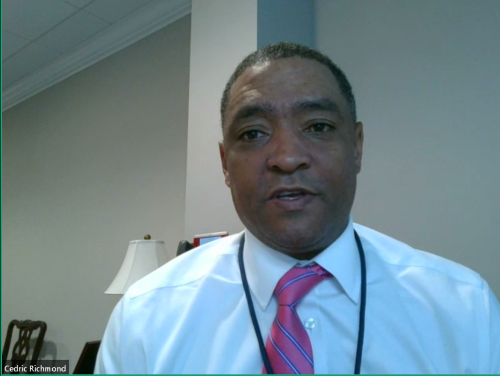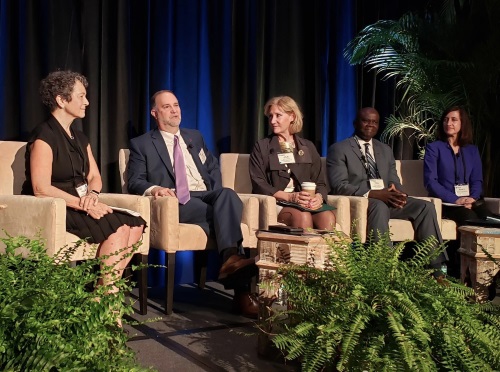Cedric Richmond (seen above), senior advisor to President Biden and director of the White House Office of Public Engagement, said a “hard push” is coming on an infrastructure stimulus bill once the administration gets its $1.9 trillion American Rescue Plan or ARP is passed.
“And we’re going to keep you all very busy as we will do a lot of this through state DOTs,” he explained during the virtual 2021 American Association of State Highway and Transportation Officials Washington Briefing on February 24.

“President Biden knows the role infrastructure plays in this country. He knows that when we invest in roads, bridges, ports, etc., we are going to get a return on our investment,” explained Richmond – a former five-term Congressman from Louisiana . “Our goal is to finish the ARP by middle of March and then we will start infrastructure. We’ll embark on that right after the ARP plan passes.”
The tough part will be how to pay for an infrastructure bill, he emphasized – a bill that the administration has previously said could top $2 trillion. “We have some ideas on how to do it, but we will lean hard on Congress to come up with a funding plan. We’re not going borrow to do it for the most part [and] we said on the campaign trail that everyone must pay their fair share – that the top 1 percent [of taxpayers] has to pay more.”
Richmond also discussed how, going forward, a “racial equity lens” must be incorporated into the transportation project planning process.
“We have ordered all federal agencies to look at this: USDOT going to be very intentional about it,” he explained. “We will make sure every action we take looks through a racial equity lens.”
His advice to state DOT leaders as policy makers to help “dismantle systemic racism” is to search for ways to make a difference, especially through Disadvantage Business Enterprise or DBE programs.
“We look at DBE [programs] as one that works well; we see real empowerment through them,” Richmond said. “It is about empowering companies to get an opportunity and invest in themselves. It is not about settling for inferior product or service: it is about getting an opportunity. That it ties into our overall focus on issues of equity and environmental justice.”
He also said the federal government could take a more active approach to in terms of holding states accountable to performance metrics on equity, emissions and other key priorities.
“I think we will try to use either the bully pulpit that we have or the stick-and-carrot approach to racial equity at the state level,” Richmond noted.



